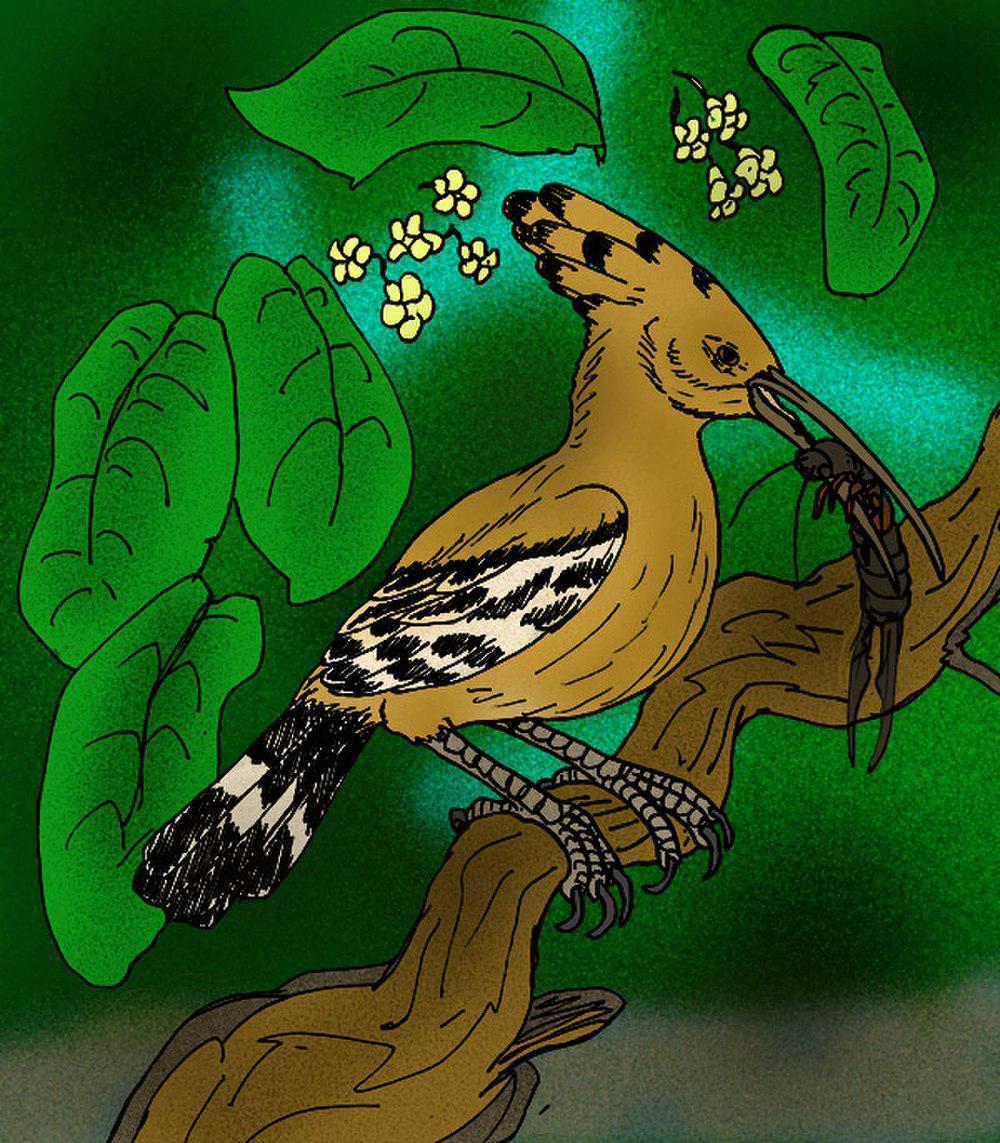St. Helena Hoopoe / Upupa antaios

St. Helena Hoopoe
SCI Name:
Protonym: Smithsonian Contributions to Paleobiology 23
Taxonomy: Bucerotiformes / Upupidae / Upupa
Taxonomy Code: sthhoo1
Type Locality: St. Helena Island
Author: Olson
Publish Year: 1975
IUCN Status: Extinct
DEFINITIONS
UPUPA
(Upupidae; Ϯ Hoopoe U. epops) L. upupa hoopoe < Gr. εποψ epops, εποπος epopos hoopoe; "58. UPUPA. Rostrum arcuatum, convexum, subcompressum Lingua obtusa, integerrima, triquetra, brevissima." (Linnaeus 1758); "Upupa Linné, Syst. Nat., ed. 10, 1, 1758, p. 117. Type, by tautonymy, Upupa epops Linné (Upupa, prebinomial specific name in synonymy)." (Peters 1945, V, 247). Linnaeus's Upupa comprised four species (U. Epops, U. paradisea, U. Eremita, U. Pyrrhocorax). Since classicial times the Hoopoe’s name in many languages has been onomatopoeic of its distinctive and familiar call (e.g. Arabic Hudhud, Dutch Hop, French Huppe puput, Portuguese Poupa, Spanish Abubilla).
Var. Hupupa, Eupupa.
Synon. Epops, Epopsides.
upupa
L. upupa hoopoe < Gr. εποψ epops, εποπος epopos hoopoe.
● ex “Huppe du cap de Bonne Espérance” of d’Aubenton 1765-1781, pl. 697, Upupa varia Boddaert, 1783, and Upupa capensis J. Gmelin, 1788 (‡syn. Fregilupus varius).
antaios
Gr. myth. Antaios, son of Gaia, giant wrestler whose strength was maintained whilst he was in contact with the earth, but who was vanquished by Hercules; "Upupa antaios, new species ... The St. Helena hoopoe was likewise a giant of its kind and as necessarily committed to the earth. ... St. Helena can boast the world's largest earwig (Labidura herculeana, Dermaptera) ... The very long probing bill of U. antaios would have been useful in preying on this species, and it takes no great imagination to envision the world's largest hoopoe conquering the world's largest earwig, thereby reversing the mythological order in having Antaios triumph over Hercules." (Olson 1975) (‡Upupa).
UPPERCASE: current genus
Uppercase first letter: generic synonym
● and ● See: generic homonyms
lowercase: species and subspecies
●: early names, variants, mispellings
‡: extinct
†: type species
Gr.: ancient Greek
L.: Latin
<: derived from
syn: synonym of
/: separates historical and modern geographic names
ex: based on
TL: type locality
OD: original diagnosis (genus) or original description (species)












